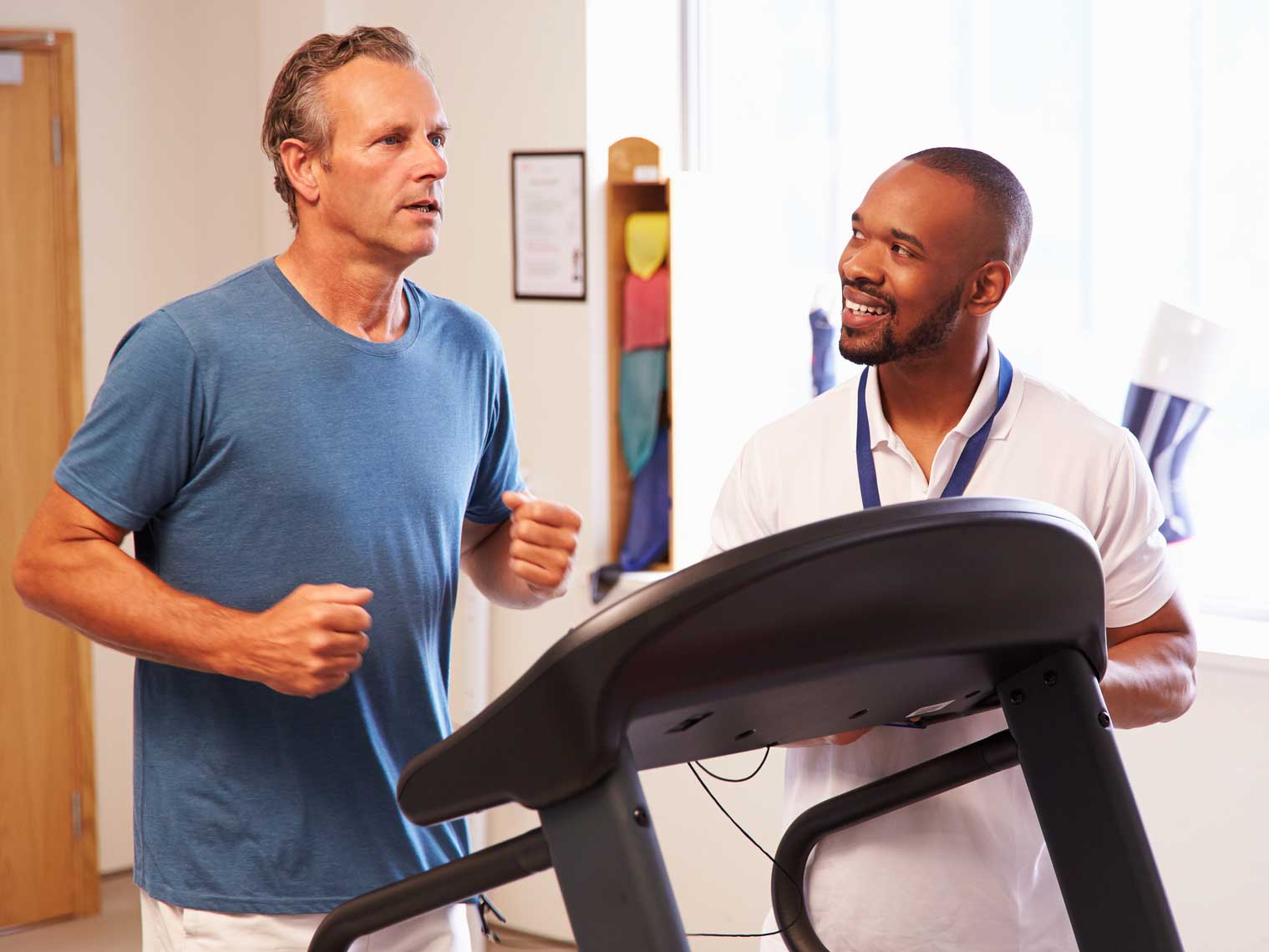<< Back
Exercise Program, Now Covered by Insurance, That Beats Heart Surgery

February 26, 2018
People living with Peripheral Artery Disease, or PAD, a condition where blood flow to legs is poor because arteries are narrow or blocked, now have another option for reducing pain and improving quality of life: a supervised exercise program.
The program — now covered by Medicare, Medicaid and most insurance plans — can deliver results similar to surgery, including decreased leg cramping and better quality of life.
At Hartford Hospital’s Cardiac Rehabilitation Program, each 60-minute exercise session is conducted by registered nurses and cardiovascular exercise physiologists. Assessments, stretches and exercise evaluations with aerobic therapy help each patient progress through the 12-week program.
Participants attend 36 total sessions, with between three and five sessions each week.
“We’ve known since the 1990s that exercise therapy works for peripheral artery disease, but insurance didn’t cover it and Medicare didn’t cover it,” said Dr. Paul D. Thompson, chief of cardiology at the Hartford HealthCare Heart & Vascular Institute. “Now many patients can participate because they have it covered.”
The structure of the program offers guidance and encouragement from clinical experts, along with motivation from peers in a group environment.
“Patients benefit from counseling and education in smoking cessation, exercise regimen and optimizing the medical therapy,” said Dr. Parth S. Shah, an endovascular and vascular surgeon. “These elements of the program help improve quality of life and reduce cardiovascular risk.”
A physician’s referral is required for participation in the program. The patient’s cardiologist or vascular doctor will complete an evaluation to see if the patient qualifies for the program. Specific testing to determine entry requirements will be part of the referral process.
If you are interested in more information, call Hartford Hospital’s Cardiac Rehabilitation Program at 860.972.2133. You can also call the program’s Farmington office at 860.696.0080.